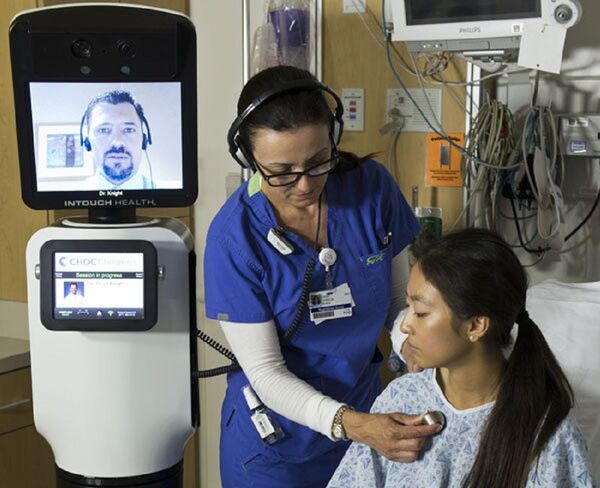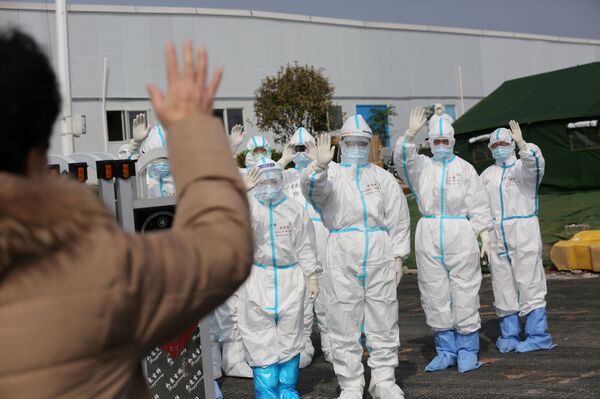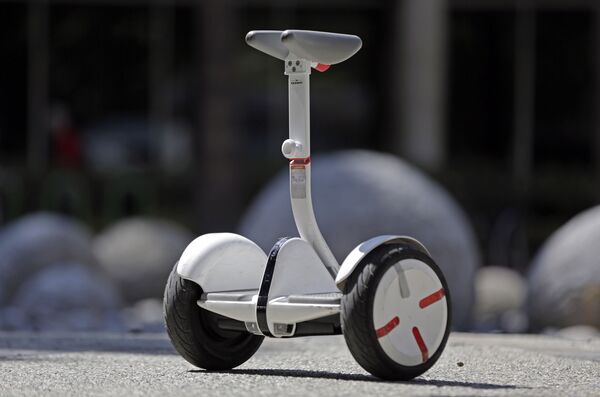After the coronavirus the world will never ever be the same again, global news headlines say, depicting a wide range of post-COVID reality scenarios. Some prognoses are grim, predicting that the pandemic will inevitably reverse the trends of globalisation and urbanisation, making the world safer but far less prosperous and dynamic, while others are expressing hope that the outbreak will reorder societies for the better. However this plays out, changes are already in motion and those who have managed to quickly adapt to them will come through the crisis with flying colours, international observers say.
Digitalisation & Cloud Infrastructure
"The after-effects of COVID-19 make for an interesting case study of the sheer divergence in our use of technology", deems Pranav Pai, engineer and founding partner of 3one4 Capital, an early-stage venture capital fund based in Bangalore, India. "On one end, social distancing, self-isolation, clean hands, and face masks are time-tested and low-tech ways to help mitigate the viral spread. On the other end, rapid diagnostic tests, mobile-first tele-health at scale, computational chemistry simulation systems for drug development, and direct transfer of capital to citizens on a national scale are complex use cases of tech that have strengthened different nations’ pandemic-response".
New technologies have proven their efficiency during the COVID outbreak, and one can expect further functional advancements in the trajectory of digitalisation across the world, according to Pai.
He insists that there has never been a stronger case for every country’s economy to be ready to move business functions to cloud-based systems. While the US and China remain the leaders in this field, "it is time for every country to focus on building a native cloud ecosystem", the engineer opines.
"The local agglomeration of cloud infrastructure will strengthen every nation’s digital future and become a comparative advantage as data becomes the new oil globally", he insists.

Telemedicine & Healthcare Management
Many developing countries struggling with the coronavirus pandemic have faced a deficit in the number of trained medical staff per million as well as the insufficient use of digital platforms to manage patient care, the Indian expert points out.
According to him, telemedicine could help fill this gap: for instance, e-consultations which took off during the coronavirus lockdown in India and other states can vastly improve access to healthcare in the future, Pai notes suggesting that roughly 50-60% of cases could be diagnosed in this manner.
"Further, doctors often have to perform many routine tasks like data entry, patient management, pharmacy interfacing, ensuring the right gear and equipment are present in the required quantities at the point-of-need, and so on—over and above their medical and caregiving duties", the engineer says adding that the need to automate these procedures have become highly relevant during the pandemic as almost every hospital has turned into a complex "patient management system".

Work-From-Home & Urban Mobility
Meanwhile, the WFH (“Work From Home”) acronym is becoming more common and re-drawing the daily routines of hundreds of millions of employees in urban clusters, according to Pai.
"It wouldn’t be surprising if several companies continued a segmented WFH policy for their employees on a rotating basis", he suggests. "Business travel may not recover quickly, with teams having realised that they are more productive over video calls and would rather avoid the overhead and health risks of travel. 'Agile' and 'WFH' may sweep through the entire white-collar universe leading to dramatic second- and third-order effects in the way we live and work".
The idea of "urban mobility" is also likely to undergo certain changes: while mass transit options cannot guarantee sanitary safety and more private vehicles are not a viable alternative as road capacities are already overloaded the COVID crisis "may be the 'iPhone moment' for single-passenger on-demand electric vehicle fleets inside the world’s cities", Pai envisions.
"With more local governments encouraging the installation and operation of EV two-wheeler docks in every major cluster in their respective cities, citizens will have instant access to affordable and sustainable mobility for a significant portion of their daily commutes", the Indian engineer presumes. "If social distancing is to be efficiently enforced, EV networks will be the most direct response to the unavoidable preference for single-passenger options. What would have taken a decade for cities to adopt may now become an immediate possibility".
New Ideas for Entertainment
Though the world we re-enter post-pandemic will most certainly be different, "the human desire for great stories, athletic competition, sonorous music and objective news are not and will not be diminished by the pandemic", underlines Paul Hardart, New York University professor and director of the entertainment, media and technology programme at the University’s Stern Business School, adding that the industry is exploring new ways to serve and interact with their customers and communities.
"As movie theatres and concert venues have had to close, some of the biggest names in media are expedited their nascent direct-to-consumer products", he elaborates. "NBC/Universal has moved up the launch of its Peacock streaming service and has accelerated and/or entirely skipped the theatrical window for some of its key motion picture releases. WarnerMedia’s HBOMax launches in two weeks and Disney+ has tried to lure new subscribers with some of their A+ titles—including the much-anticipated Hamilton performance film this summer".
According to the professor, many of these trends were already in motion before the COVID outbreak: "Plateauing theatre attendance, cable cord-cutting and a migration to streaming have been trending for several years now", he remarks. However, the pandemic has accelerated these trends "likely upending the media ecosystem forever", Hardart forecasts.

Reinventing Shopping?
Ms. Neha Singh, Founder and CEO of Obsess, a new online shopping destination reinventing the experience of discovering products and brands, says that in these past months of ambiguity and disruption, her company has been getting a lot of interest from retailers and brands across industries such as telecom, beauty, fashion, home & outdoor utilities, furniture, among others.
"The next evolution in the industry is 'omnichannel experience'. For the last several years, omnichannel has been about the availability of products across offline and online, and experiential has been about retail stores. Over the next few years, experiential e-commerce is expected to be one of the 4 main factors that will drive the growth of online purchase of fashion", she says.
Singh, who has led engineering and product teams at Google, Vogue, a luxury e-commerce startup, and built platforms and products reaching millions of users, believes that by utilising new creative technologies, "the full brand experience can be brought to the consumer on every medium they are using, even if it's not in person".
"Our advice to the brands and retailers is - to get creative, and not think of their digital retail as an online product catalog. But really use their digital presence to convey their brand story and connect with their customers in a personal and engaging manner - by bringing in their true creative expression into digital, the same way that it is done in retail stores and special events. To inspire and delight consumers by immersing them in unique environments that make the brand stand out. Today there is an immediate need for companies to set digital strategies in place when consumers globally are choosing to shop at the ease of their mobile devices instead of stepping into a physical store. We see this trend evolving in the coming months and years!", the CEO of Obsess elucidates.
According to Singh, virtual stores and showrooms are "very much the need of the hour":
"With Obsess, today fashion brands have the possibility to show their collections to the buyers globally, who probably might not be travelling to fashion capitals in the next months. We are able to offer them a solution to this problem by creating 3D photorealistic virtual showrooms in which buyers can experience the collection and get the full brand experience", she adds.
Strong Communities Tend to Handle Calamities Better
While the coronavirus outbreak is changing global business models and the perception of travel, the general idea of social "community" has seemingly taken on a new significance in the world, according to Elliott Zaagman, a columnist for the China-focused tech news website Technode.com and co-host of the China Tech Investor Podcast. He observes that the regions where communities have been stronger have often been better at managing the virus.
"Take a look at Taiwan and South Korea for example", he says. "The two have been hailed as being amongst the best in jangling the outbreak. While government actions matter quite a bit, what they’ve shown is a shared sense of identity and community is part of what has helped them succeed".
Likewise civil society, business, and government institutions that are community-minded have shown themselves very useful and effective, Zaagman highlights.
"For as much as we’ve seen the world embrace the concept of a 'global village' in recent decades, this pandemic has really tested local communities around the world", he says. "Some have failed, while others have passed with flying colours.
The outbreak has revealed which governments have an understanding of what population groups are most vulnerable and what businesses and individuals are most in need of financial support, according to the columnist. Likewise, it has raised the question whether the wealthy feel a responsibility to keep paying their employees while the COVID-driven recession bites, he notes.
"Unlike other calamities that have faced the world, COVID-19 is unique in its collective global impact", agrees Paul Hardart. "We have all been through something together and it is hoped that on the other side, we might all be a little closer, a little more empathetic and a little more kind".


